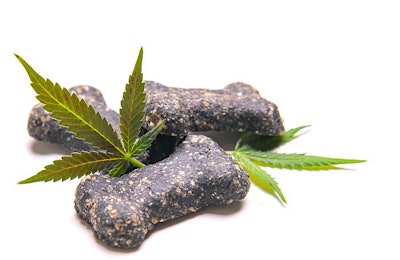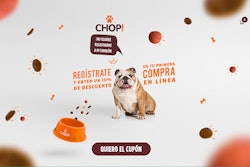
Proliferation of new cannabidiol (CBD) pet products, during the past few years, greatly outpaced publication of peer-reviewed studies on how CBD dosage and other variables influence pet health. One pet food industry executive noted several areas ripe for more research. Even as that body of knowledge grows, ultimately, the right CBD dosage for each pet may come down to that animals’ specific physiology and the formulation of the CBD-infused pet product.
“To date, ElleVet’s scientific team has published two studies with more than five studies currently underway and several in the pipeline,” Christian Kjaer, CEO of ElleVet Sciences, said. “Areas we feel need most attention include specific formulations of cannabinoids to support specific physiologic processes and potential synergy with conventional therapies already being used.”
A scientist with ElleVet Sciences collaborated with academic researchers to examine how ingestion of CBD influenced dogs’ and cats’ behavior and blood composition over 12 weeks. The scientists used ElleVet’s hemp CBD oil product in the experiment. They observed different effects in dogs and cats from CBD, with cats showing behavioral changes.
In October, the journal Animals published the results of that study. While dogs showed no clinically significant variations after 12 weeks, cats exhibited excessive head shaking and licking. One cat had increased levels of a certain enzyme.
Pet-specific dosage of CBD products
“As we continue with our studies, we expect to narrow down dosing strategies for specific scenarios, rather than a one-size-fits-all dosing scheme as seen with other products,” Kjaer said.
For example, one milligram per kilogram, twice a day, of ElleVet’s cannabinoid formulation has proven to be safe and effective for dogs with mobility discomfort, he said. However, every animal has its own physiology and may respond differently.
“So far, we have determined a dosage strategy that is effective in >80% of animals for increased comfort levels,” he said.
High dosages of CBD products for pets
So far, ElleVet’s scientists haven’t identified a point where CBD becomes toxic to pets, Kjaer said. However, dosing should be reasonable and based on evidence.
“Because ElleVet has tested up to 8mg/kg in dogs specifically, we do not see a reason to go above this dosing unless under the direction of a veterinarian or as new studies come out,” he said.
Kjaer said that pet owners and veterinarians should understand that not all hemp CBD-infused pet products are the same. So, one can’t extrapolate results of one study or even dosing for one product to another with their varying ingredients.
Veterinarians also need to be part of any pet owner’s consideration of including CBD in the diets of dogs, cats or other pets, he said.



















